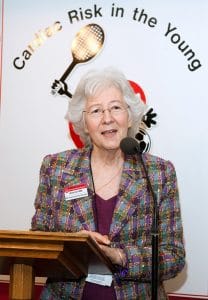
It has troubled me for some time that grandparents so seldom contact us to seek personal bereavement support. The introduction of our Aspect of Grief booklets highlighted the fact that we had no facility for helping grandparents with their suffering after the loss of a treasured grandchild.
The training of CRY’s Bereavement Supporters relies on volunteers being prepared to commit to two years of counselling training and the travelling that the training incurs. There are also follow-up events with two supervisions annually, not forgetting the commitment of the weekly one-hour call to the person that is being helped. Taking on the rigour of the course requires each applicant to write a personal journal that confronts deep feelings. Coming to terms with what is exposed can be very challenging and exhausting. It is unsurprising that grandparents do not want to spend precious time on doing this course. We have been delighted with the response from our Bereavement Supporters to our grandparents initiative, eight of whom have welcomed the opportunity to include supporting grandparents as well as managing their own aspect of grief.
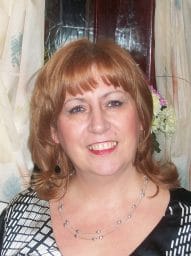 Angela Butler
Angela Butler
Angela has been with CRY since she found her 16-year-old son, Nathan, dead when she returned home from work one day. The shock and desolation for her and her husband was inexpressible. She was inconsolable for some considerable time, whilst also being aware of the suffering of her own parents who she was very close to. Angela and her mother talked about Nathan all day, every day, through their tears, and Angela was aware that her mother had to cope not only with her own grief, but her child’s as well. Angela’s father was over 80 when Nathan died. He found that he was unable to talk about Nathan’s death at all but cried, and being unable to talk he just kept on crying to the day that he died at 86. He couldn’t understand how he was so old, with all his aches and pains and physical problems, yet Nathan was so young and seemingly fit with no sign of anything wrong with him.
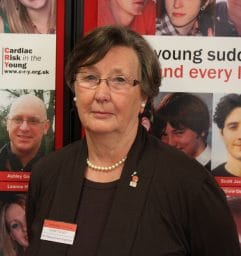 Diane Tolley
Diane Tolley
Dianes’ 15-year-old son, Robert, died from young sudden cardiac death in 1996 when he had gone out for a bike ride. He had not experienced any symptoms and the effect on Diane was catastrophic. The lack of information available in those days contributed to her terror and she lived in dread of the condition having been inherited and affecting her daughter and ultimately grandchildren. When she called from the hospital that her grandchild, Louis, was having emergency heart surgery, Diane found that she was unable to talk. She started reliving the same tortuous experience as when Robert died. She screamed. And screamed. And screamed. She thought that she was going mad. But Louis’s ablation surgery proved successful and the condition he was found to have, although dangerous, was not the same one that had killed Robert.
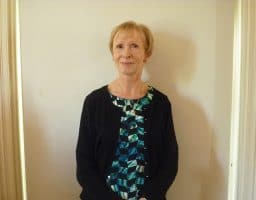 Jane Lambert
Jane Lambert
Jane’s daughter, Jennifer, died suddenly at 17, four years before her grandmother. Jane was utterly disbelieving that it was possible such a fit, young girl and outstanding ballerina with an exciting future ahead of her could suddenly and unaccountably be dead. Her mother had come from a generation that had been disciplined to stifle all emotion and was consequently unable to express her feelings. All she could do was endlessly reiterate her mantra that such a thing was impossible.
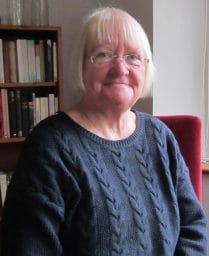 Joan Hillier
Joan Hillier
Joan’s daughter, Laura, was enjoying her work experience helping her GP father in his surgery when, aged 21, she collapsed and died whilst sorting some filing. Both grandfathers had died some time ago, but the two grandmothers were very close to Laura, who was the first and only grandchild for some years. The grandmothers were good friends but very different characters. Joan’s mother was very sociable and lively, whilst her husband Tony’s mother was quieter, more introverted – a rather private person. After Laura’s tragic death both aged overnight and shrunk emotionally and physically. They were weary with grief, fell into ill health and died not long after.
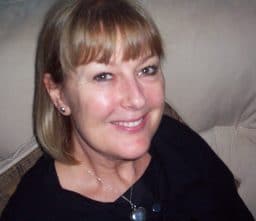 Sue Ainsworth
Sue Ainsworth
Sue was utterly devastated when her son, Jonathon, died age 21. Her parents, who had also been deeply affected and to whom she was very close, were extremely worried about the impact of the tragedy on their daughter. They were relieved when she decided to move in with them. Sue and her mother used to cry together but her father was a quiet, composed man who never let anyone know his feelings – something that used to really frustrate Sue. He refused to talk about it, worrying perhaps that he might upset Sue further, but constantly saying that it should have been him that died. She was able to share her feelings with her mother who was fearful that the loss of Jonathon would overwhelm Sue, and was very guarded in what she said. The stress she put herself under caused such deep depression that she was eventually persuaded to have a counselling session. She found the relief of having someone neutral to talk to greatly helped address her anxiety. Sue’s anguished crying badly affected her parents, who were desperate to alleviate her pain but felt helpless.
 Gabby Broadhurst
Gabby Broadhurst
Gabby became very close to her father-in-law after the death of his 19-year-old grandson, David, to whom he was devoted. He was of a generation that had lost relatives in the war and initially found it difficult to confront and express his feelings as he was made so distraught by David’s death. Gabby was delighted with the great interest he took in CRY’s Aspects of Grief booklets and the bereavement support training she was undertaking as it gave them so much to discuss. It surprised him when he discovered that the more he and Gabby were able to talk about things, the more comfortable he became in sharing his feelings about the horror of his loss. He was both mentally and physically affected by David’s death and was surprised by how emotional it made him. Gabby was astonished at the way their relationship was able to develop and how the barriers that had inhibited discussing their feelings were dissipated.
 Bruce Lord
Bruce Lord
At 24 Bruce’s daughter, Rachael, was enjoying the luxury of her holiday abroad with her boyfriend when she died suddenly whilst swimming in the hotel pool. Bruce was the youngest in a large family of seven children and his mother’s pain at the loss of her grandchild cut very deep. She called all the family together to talk to them. She told them she felt a huge guilt about still being alive when her granddaughter was not, and repeatedly told anyone who would listen that she had cried so much she could not cry any more. Although she had 14 grandchildren and 16 great grandchildren, and had weathered many a crisis during the course of her long life, Rachael’s sudden unaccountable death haunted her final years which were full of worry that such a thing could happen again.
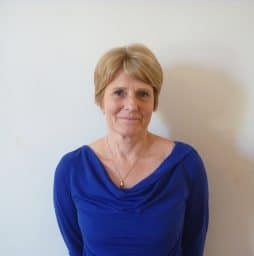 Marion Hayman
Marion Hayman
Jonathan was very close to his grandparents and was greatly distressed by the death of his grandfather at 86. Jonathan missed him deeply. The impact of his own sudden death at 27 on his grandmother, who had so stoically accepted her husband’s death, was overwhelming. She never complained of being alone, was always content and particularly conscious of not wanting to be a burden and exacerbate the nightmare of sadness for her child. Marion said that her mother spent many hours afterwards just sitting and looking at the pictures of her husband and grandchild. She suffered quietly, reiterating how sad it was and recalling the precious memories of times gone by.
There are many different reasons why grandparents do not seek help for themselves after their terrible loss. The family is in such turmoil, there is such great distress, and they do not want to impose their grief on those that would be better engaged helping other family members. It feels safer grieving alone, at times to suit themselves and when they can be occupied with other distractions like gardening or walking. Other friends that they would have turned to have died and sometimes their husband or wife cannot cope with their tears, so they excuse themselves and take refuge in their own isolation when the tears start.
Grandparents can become increasingly reluctant to draw attention to their own grief, so try not to think about it as they are best left alone. So they battle on by dismissing their own agony and endeavouring to support their child whose life has been destroyed.
As they get older, grandparents can feel that their lives and its memories are behind them. They can become lost in their reflections, not least of which is their beloved grandchild. They rely on their happier memories to revive them. Their future is unpredictable and limited, so their strength is focused on silent grieving and trying to cope with the double whammy of their loss – their grandchild and their child, whose spirit has been so brutally crushed by the weight of their grief.
CRY has recently launched a Facebook group for bereaved grandparents who have lost a grandchild to a young sudden cardiac death. The group is completely private – only those within the group can see conversations – and gives grandparents the opportunity to share feelings and experiences with others who have been affected by the tragic sudden cardiac death of a grandchild. To join this group, please complete the registration form at www.c-r-y.org.uk/group-support




